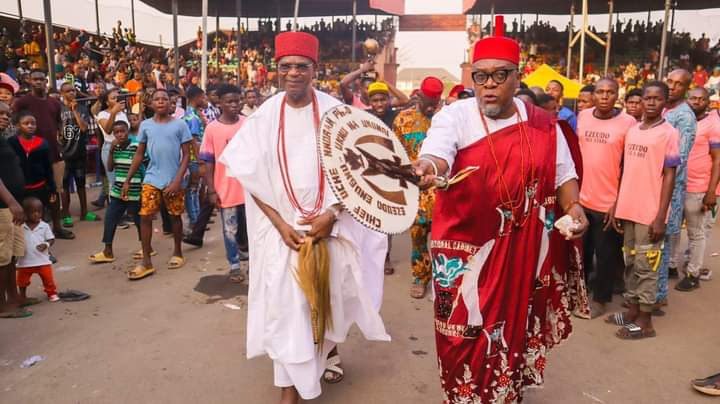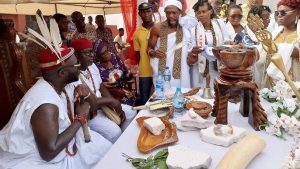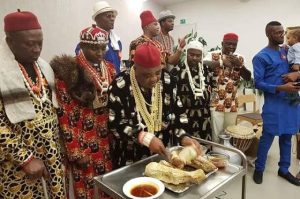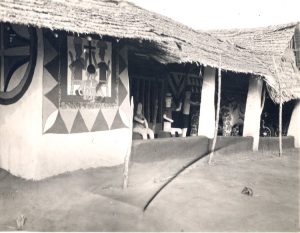Among the most important and energetic cultural festivals in southeast Nigeria, especially among the Aro people—a subset of the Igbo ethnic group—the Aro Festival is one Annually, this ceremony honors the rich legacy, history, and spiritual beliefs of the Aro people. Deeply ingrained in customs and rituals, the Aro Festival provides an opportunity for the Aro people to pay tribute to their ancestors, reaffirm their cultural identity, and therefore deepen the ties of solidarity within the society. Offering information on one of the most significant cultural occasions in Igboland, this thorough essay investigates the history, importance, customs, and modern relevance of the Aro Festival.
Historical Origins and Significance
Rooted in the traditional customs and religious beliefs of the Aro people, who are well-known for their significant part in the history of southeast Nigeria, the Aro Festival Igbo culture and influence were greatly expanded across the Aro Confederacy, a strong and vast network of villages connected by commerce, religion, and military alliances. Particularly via the Aro Oracle, often known as Ibini Ukpabi, the Aro people—who acted as middlemen between many ethnic groups and communities—were also renowned for their religious leadership.
The celebration itself is said to have started as a means of respect for the ancestors and gods supposed to guide and defend the Aro people. This was a moment to honor these supernatural beings, ask for their blessings, and strengthen the community’s dedication to the customs and values that had kept it going for many centuries. Therefore, the Aro Festival is a spiritual and community gathering that supports the continuity, togetherness, and identification of the Aro people rather than just a cultural event.
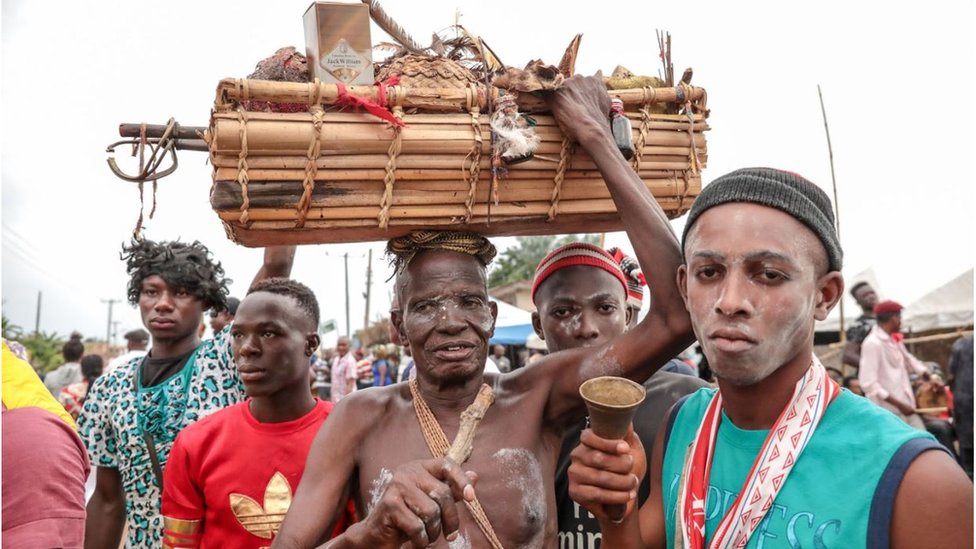
Rituals and Practices
Aro Festival is observed with a sequence of complex ceremonies and rites having symbolic meaning and relevance. These ceremonies are meant to worship the gods, call for the presence of the ancestors, and acknowledge communal successes. Usually lasting several days, the celebration honors many facets of the history, culture, and spiritual beliefs of the town.
Common cultural practice among many Igbo people, the Iriji ceremony—also known as the New Yam Festival—is one of the main rites of the Aro Festival. Offering the gods and ancestors the first yam harvest of the year as a token of thanks for a plentiful crop, this rite marks The spiritual leaders of the community bless the yams; the first yam is cut and distributed to the participants and elderly people symbolically. Apart from expressing thankfulness, this act of sharing helps to strengthen social ties and promote group harmony.
The Ekpe masquerade, a highly valued and covert society integral in the religious and cultural life of the Aro people, is another important custom during the Aro Festival. Considered to represent the spirits of the ancestors and gods, the Ekpe masquerade is the centerpiece of the celebration. Apart from providing entertainment value, the masquerade dances, chants, and shows help to transmit spiritual realm messages to the society. The Ekpe organization also utilizes the celebration as a chance to start new members, who go through demanding training and rites to become fully active members of the society.
Still another significant feature of the Aro Festival is the Ikoro ritual. Only used at important occasions in the village, the big wooden drum known as the Ikoro is revered and The Ikoro is beaten to signal the start of the celebration, call the community, and transmit significant announcements. Since the Ikoro is supposed to reach the ears of the ancestors and gods, therefore calling them to participate in the celebration, its sound is regarded to have spiritual meaning.
Along with other community events like dancing performances, storytelling sessions, and traditional wrestling contests, the Aro Festival These events help the next generation to inherit cultural information and values as well as showcase the physical and creative ability of the Aro people. The celebration also provides an opportunity for the community to gather, settle problems, and forward plans.
Cultural and Social Importance
The Aro Festival is a powerful statement of Aro identity and legacy, not just a cultural gathering. The celebration is an opportunity for the Aro people to respect their ancestors, reinterpret their dedication to the customs that have molded their society, and reestablish their origins. The celebration reminds us of the historical successes of the Aro people, especially their contribution in the dissemination of Igbo culture and impact across southeast Nigeria.
Maintaining social cohesiveness among the society depends very much on the event. The Aro people are able to strengthen their social links, settle problems, and guarantee the continuation of their cultural traditions by means of the many rites, ceremonies, and group activities. The celebration offers the chance for the community to gather, honor their common background, and transmit cultural knowledge and values to the next generation.
Apart from its social and cultural value, the Aro Festival is also a major financial occasion for the local people. The celebration draws travelers, Aro diaspora members, guests, and cultural vultures from all over. The local economy benefits from this flood of tourists as it offers chances for commerce, hospitality, and other kind of businesses. The celebration also provides a stage for presenting Aro arts, crafts, and other cultural goods, therefore enhancing the cultural legacy of the town to a larger audience.

Contemporary Relevance
Notwithstanding the difficulties of modernism, urbanization, and the impact of other cultures, the Aro Festival has been flourishing in modern times. The fundamental ceremonies and principles of the event remain unchanged even if certain elements have changed to fit changing societal circumstances. The Aro people have showed a great capacity to preserve their cultural uniqueness while also adjusting their customs to the contemporary society.
The Aro Festival has changed to fit current times in part by using media and technologies. Radio, television, and social media are among the many media outlets the festival is now extensively reported on, which has helped to draw more people and raise knowledge of Aro culture. Since it gives individuals from all origins and cultures the chance to experience and appreciate the rich legacy of the Aro people, the festival has also evolved as a forum for cultural interaction.
Notwithstanding these developments, the Aro Festival is a very spiritual and social gathering. The celebration stays a potent statement of Aro identity and pride, and the rites and ceremonies are carried out with the same respect and dedication as in the past. The celebration reminds us also of the necessity of cultural preservation as it emphasizes the need of safeguarding and advancing the customs defining the Aro people.
Conclusion
Celebrated Aro history, legacy, and spirituality, the Aro Festival This is the moment for the Aro people to respect their ancestors, restate their cultural identity, and deepen their ties of solidarity within their society. By means of its complex ceremonies, rites, and group activities, the celebration powerfully expresses Aro identity and pride. The Aro Festival keeps growing despite the difficulties of industrialization and cultural transformation, therefore preserving the customs and values that have kept the Aro people alive for many years. Reflecting the ongoing power and vibrancy of Aro history, the Aro Festival continues to be one of the most significant cultural events in southeast Nigeria as evidence of the resiliency and adaptation of Igbo culture.
Please read all our stories on African Culture here
